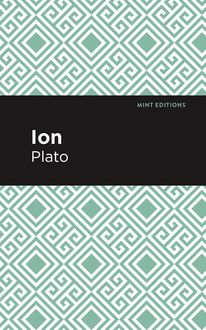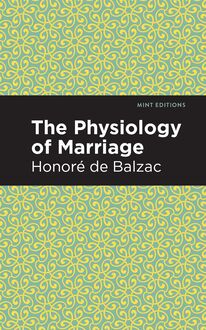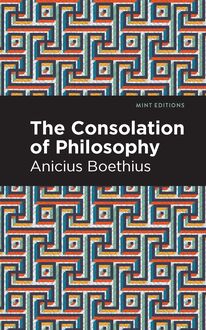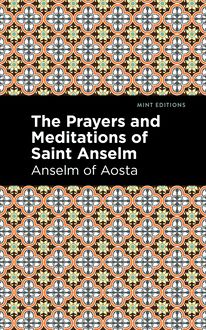-
 Univers
Univers
-
 Ebooks
Ebooks
-
 Livres audio
Livres audio
-
 Presse
Presse
-
 Podcasts
Podcasts
-
 BD
BD
-
 Documents
Documents
-
- Cours
- Révisions
- Ressources pédagogiques
- Sciences de l’éducation
- Manuels scolaires
- Langues
- Travaux de classe
- Annales de BEP
- Etudes supérieures
- Maternelle et primaire
- Fiches de lecture
- Orientation scolaire
- Méthodologie
- Corrigés de devoir
- Annales d’examens et concours
- Annales du bac
- Annales du brevet
- Rapports de stage
La lecture à portée de main
Vous pourrez modifier la taille du texte de cet ouvrage
Découvre YouScribe en t'inscrivant gratuitement
Je m'inscrisDécouvre YouScribe en t'inscrivant gratuitement
Je m'inscrisEn savoir plus
Vous pourrez modifier la taille du texte de cet ouvrage
En savoir plus

Description
A conversational text that addresses many philosophical concepts as well as Western religion by questioning good versus evil and the unnecessary suffering of innocent people. Anicius Boethius draws from his own experiences to illustrate these spiritual and ethical struggles.
In The Consolation of Philosophy the author engages in a figurative discussion with Lady Philosophy, a type of teacher. Through their exchange, he poses serious questions regarding the existence of God and human nature. He also acknowledges his own dire circumstances, contemplating the hardships and trauma. Many counterpoints are tied to ideals such as the Wheel of Fortune, highlighting inconsistent and often unfair outcomes. He also focuses on the importance of intangible gifts such as love and intelligence.
The Consolation of Philosophy is an honest analysis of the nature of happiness. It forces the reader to face hard truths about their wants versus needs. It’s a sobering examination of the unpredictable structure of life.
With an eye-catching new cover, and professionally typeset manuscript, this edition of The Consolation of Philosophy is both modern and readable.
Sujets
Informations
| Publié par | Mint Editions |
| Date de parution | 01 décembre 2020 |
| Nombre de lectures | 0 |
| EAN13 | 9781513273556 |
| Langue | English |
| Poids de l'ouvrage | 2 Mo |
Informations légales : prix de location à la page 0,0450€. Cette information est donnée uniquement à titre indicatif conformément à la législation en vigueur.
Extrait
The Consolation of Philosophy
Anicius Boethius
This edition of The Consolation of Philosophy was first published in 1882.
This edition published by Mint Editions 2021.
ISBN 9781513268552 | E-ISBN 9781513273556
Published by Mint Editions®
minteditionbooks.com
Publishing Director: Jennifer Newens
Design & Production: Rachel Lopez Metzger
Translated by: H.R. James
Typesetting: Westchester Publishing Services
I NDEX OF V ERSE I NTERLUDES P REFACE P ROEM B OOK 1. T HE S ORROWS OF B OETHIUS S ONG I. B OETHIUS ’ C OMPLAINT S ONG II. H IS D ESPONDENCY S ONG III. T HE M ISTS DISPELLED S ONG IV. N OTHING CAN SUBDUE V IRTUE S ONG V. B OETHIUS ’ P RAYER S ONG VI. A LL T HINGS HAVE THEIR N EEDFUL O RDER S ONG VII. T HE P ERTURBATIONS OF P ASSION B OOK 2. T HE V ANITY OF F ORTUNE ’ S G IFTS I. F ORTUNE ’ S M ALICE II. M AN ’ S C OVETOUSNESS III. A LL PASSES IV. T HE G OLDEN M EAN V. T HE F ORMER A GE VI. N ERO ’ S I NFAMY VII. G LORY MAY NOT LAST VIII. L OVE IS L ORD OF ALL B OOK 3. T RUE H APPINESS AND F ALSE I. T HE T HORNS OF E RROR II. T HE B ENT OF N ATURE III. T HE I NSATIABLENESS OF A VARICE IV. D ISGRACE OF H ONOURS CONFERRED BY A T YRANT V. S ELF - MASTERY VI. T RUE N OBILITY VII. P LEASURE ’ S S TING VIII. H UMAN F OLLY IX. I NVOCATION X. T HE T RUE L IGHT XI. R EMINISCENCE XII. O RPHEUS AND E URYDICE B OOK 4. G OOD AND I LL F ORTUNE I. T HE S OUL ’ S F LIGHT II. T HE B ONDAGE OF P ASSION III. C IRCE ’ S C UP IV. T HE U NREASONABLENESS OF H ATRED V. W ONDER AND I GNORANCE VI. T HE U NIVERSAL A IM VII. T HE H ERO ’ S P ATH B OOK 5. F REE W ILL AND G OD ’ S F OREKNOWLEDGE I. C HANCE II. T HE T RUE S UN III. T RUTH ’ S P ARADOXES IV. A P SYCHOLOGICAL F ALLACY V. T HE U PWARD L OOK VI. E PILOGUE
P REFACE
T he book called “The Consolation of Philosophy” was throughout the Middle Ages, and down to the beginnings of the modern epoch in the sixteenth century, the scholar’s familiar companion. Few books have exercised a wider influence in their time. It has been translated into every European tongue, and into English nearly a dozen times, from King Alfred’s paraphrase to the translations of Lord Preston, Causton, Ridpath, and Duncan, in the eighteenth century. The belief that what once pleased so widely must still have some charm is my excuse for attempting the present translation. The great work of Boethius, with its alternate prose and verse, skilfully fitted together like dialogue and chorus in a Greek play, is unique in literature, and has a pathetic interest from the time and circumstances of its composition. It ought not to be forgotten. Those who can go to the original will find their reward. There may be room also for a new translation in English after an interval of close on a hundred years.
Some of the editions contain a reproduction of a bust purporting to represent Boethius. Lord Preston’s translation, for example, has such a portrait, which it refers to an original in marble at Rome. This I have been unable to trace, and suspect that it is apocryphal. The Hope Collection at Oxford contains a completely different portrait in a print, which gives no authority. I have ventured to use as a frontispiece a reproduction from a plaster-cast in the Ashmolean Museum, taken from an ivory diptych preserved in the Bibliotheca Quiriniana at Brescia, which represents Narius Manlius Boethius, the father of the philosopher. Portraiture of this period is so rare that it seemed that, failing a likeness of the author himself, this authentic representation of his father might have interest, as giving the consular dress and insignia of the time, and also as illustrating the decadence of contemporary art. The consul wears a richly-embroidered cloak; his right hand holds a staff surmounted by the Roman eagle, his left the mappa circensis, or napkin used for starting the races in the circus; at his feet are palms and bags of money—prizes for the victors in the games. For permission to use this cast my thanks are due to the authorities of the Ashmolean Museum, as also to Mr. T.W. Jackson, Curator of the Hope Collection, who first called my attention to its existence.
I have to thank my brother, Mr. L. James, of Radley College, for much valuable help and for correcting the proof-sheets of the translation. The text used is that of Peiper, Leipsic, 1874.
P ROEM
A nicus Manlius Severinus Boethius lived in the last quarter of the fifth century A . D . , and the first quarter of the sixth. He was growing to manhood, when Theodoric, the famous Ostrogoth, crossed the Alps and made himself master of Italy. Boethius belonged to an ancient family, which boasted a connection with the legendary glories of the Republic, and was still among the foremost in wealth and dignity in the days of Rome’s abasement. His parents dying early, he was brought up by Symmachus, whom the age agreed to regard as of almost saintly character, and afterwards became his son-in-law. His varied gifts, aided by an excellent education, won for him the reputation of the most accomplished man of his time. He was orator, poet, musician, philosopher. It is his peculiar distinction to have handed on to the Middle Ages the tradition of Greek philosophy by his Latin translations of the works of Aristotle. Called early to a public career, the highest honours of the State came to him unsought. He was sole Consul in 510 A . D . , and was ultimately raised by Theodoric to the dignity of Magister Officiorum, or head of the whole civil administration. He was no less happy in his domestic life, in the virtues of his wife, Rusticiana, and the fair promise of his two sons, Symmachus and Boethius; happy also in the society of a refined circle of friends. Noble, wealthy, accomplished, universally esteemed for his virtues, high in the favour of the Gothic King, he appeared to all men a signal example of the union of merit and good fortune. His felicity seemed to culminate in the year 522 A . D . , when, by special and extraordinary favour, his two sons, young as they were for so exalted an honour, were created joint Consuls and rode to the senate-house attended by a throng of senators, and the acclamations of the multitude. Boethius himself, amid the general applause, delivered the public speech in the King’s honour usual on such occasions. Within a year he was a solitary prisoner at Pavia, stripped of honours, wealth, and friends, with death hanging over him, and a terror worse than death, in the fear lest those dearest to him should be involved in the worst results of his downfall. It is in this situation that the opening of the “Consolation of Philosophy” brings Boethius before us. He represents himself as seated in his prison distraught with grief, indignant at the injustice of his misfortunes, and seeking relief for his melancholy in writing verses descriptive of his condition. Suddenly there appears to him the Divine figure of Philosophy, in the guise of a woman of superhuman dignity and beauty, who by a succession of discourses convinces him of the vanity of regret for the lost gifts of fortune, raises his mind once more to the contemplation of the true good, and makes clear to him the mystery of the world’s moral government.
BOOK 1
THE SORROWS OF BOETHIUS
Summary
Boethius’ complaint (Song I.).—C H . I. Philosophy appears to Boethius, drives away the Muses of Poetry, and herself laments (Song II.) the disordered condition of his mind.— C H . II. Boethius is speechless with amazement. Philosophy wipes away the tears that have clouded his eyesight.— C H . III. Boethius recognises his mistress Philosophy. To his wondering inquiries she explains her presence, and recalls to his mind the persecutions to which Philosophy has oftentimes from of old been subjected by an ignorant world. C H . IV. Philosophy bids Boethius declare his griefs. He relates the story of his unjust accusation and ruin. He concludes with a prayer (Song V.) that the moral disorder in human affairs may be set right.— C H . V. Philosophy admits the justice of Boethius’ self-vindication, but grieves rather for the unhappy change in his mind. She will first tranquillize his spirit by soothing remedies.— C H . VI. Philosophy tests Boethius’ mental state by certain questions, and discovers three chief causes of his soul’s sickness: (1) He has forgotten his own true nature; (2) he knows not the end towards which the whole universe tends; (3) he knows not the means by which the world is governed.
Song I
B OETHIUS ’ C OMPLAINT
Who wrought my studious numbers
Smoothly once in happier days,
Now perforce in tears and sadness
Learn a mournful strain to raise.
Lo, the Muses, grief-dishevelled,
Guide my pen and voice my woe;
Down their cheeks unfeigned the tear drops
To my sad complainings flow!
These alone in danger’s hour
Faithful found, have dared attend
On the footsteps of the exile
To his lonely journey’s end.
These that were the pride and pleasure
Of my youth and high estate
Still remain the only solace
Of the old man’s mournful fate.
Old? Ah yes; swift, ere I knew it,
By these sorrows on me pressed
Age hath come; lo, Grief hath bid me
Wear the garb that fits her best.
O’er my head untimely sprinkled
These white hairs my woes proclaim,
And the skin hangs loose and shrivelled
On this sorrow-shrunken frame.
Blest is death that intervenes not
In the sweet, sweet years of peace,
But unto the broken-hearted,
When they call him, brings release!
Yet Death passes by the wretched,
Shuts his ear and slumbers deep;
Will not heed the cry of anguish,
Will not close the eyes that weep.
For, while yet inconstant Fortune
Poured her gifts and all was bright,
Death’s dark hour had all but whelmed me
In the gloom of endless night.
Now, because misfortune’s shadow
Hath o’erclouded that false face,
Cruel Life still halts and lingers,
Though I loathe his weary race.
Friends, why did ye once so lightly
Vaunt me happ
-
 Univers
Univers
-
 Ebooks
Ebooks
-
 Livres audio
Livres audio
-
 Presse
Presse
-
 Podcasts
Podcasts
-
 BD
BD
-
 Documents
Documents
-
Jeunesse
-
Littérature
-
Ressources professionnelles
-
Santé et bien-être
-
Savoirs
-
Education
-
Loisirs et hobbies
-
Art, musique et cinéma
-
Actualité et débat de société
-
Jeunesse
-
Littérature
-
Ressources professionnelles
-
Santé et bien-être
-
Savoirs
-
Education
-
Loisirs et hobbies
-
Art, musique et cinéma
-
Actualité et débat de société
-
Actualités
-
Lifestyle
-
Presse jeunesse
-
Presse professionnelle
-
Pratique
-
Presse sportive
-
Presse internationale
-
Culture & Médias
-
Action et Aventures
-
Science-fiction et Fantasy
-
Société
-
Jeunesse
-
Littérature
-
Ressources professionnelles
-
Santé et bien-être
-
Savoirs
-
Education
-
Loisirs et hobbies
-
Art, musique et cinéma
-
Actualité et débat de société
- Cours
- Révisions
- Ressources pédagogiques
- Sciences de l’éducation
- Manuels scolaires
- Langues
- Travaux de classe
- Annales de BEP
- Etudes supérieures
- Maternelle et primaire
- Fiches de lecture
- Orientation scolaire
- Méthodologie
- Corrigés de devoir
- Annales d’examens et concours
- Annales du bac
- Annales du brevet
- Rapports de stage




















